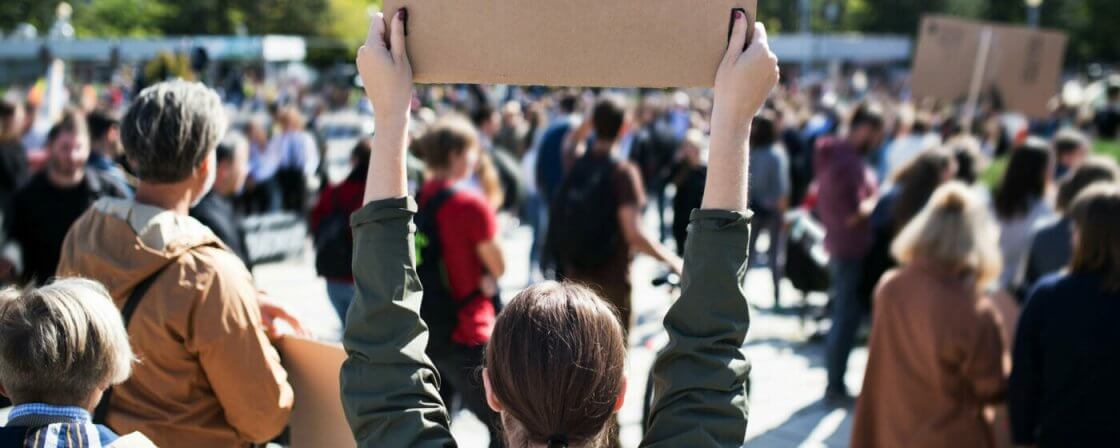What do we mean by human rights?
Human rights are rights that we have simply because we exist as human beings. Although it might appear otherwise at first glance, these rights are not granted by any state. They are inherent in all of us, regardless of nationality, gender, origin, race, religion, language, political opinion or any other status. We include the most basic rights, such as the right to life, as well as those that fundamentally affect its quality, such as the right to education, the right to work and the right to express oneself freely.
Are human rights and fundamental rights the same?
- The concept of human rights emphasises more the interconnection of these rights with individual people. These are rights that exist outside of states. They are often characterized as inalienable, inalienable, non-derogable and non-derogable.
- The concept of fundamental rights is typically associated with national human rights arrangements. In the Czech Republic, we also speak of the Charter of Fundamental Rights and Freedoms in this context.
The permanence of human rights goes hand in hand with the impossibility for the public authorities to withdraw or abrogate them. Individuals cannot waive them or transfer them to another person. People are their bearers from birth to death and in some cases even before birth and after death. However, this “natural law” nature of human rights has, of course, been debated for a long time. In practice, it must always be the state and a specific authority that defines and protects the rights in question.
Has the concept of human rights existed since time immemorial?
Throughout history, since the Middle Ages, we have encountered various documents that ascribed certain rights to certain groups. It was not until the end of the 17th century in England and the end of the 18th century in America(Bill of Rights) that human rights became more prominent. In Europe at the same time, the French Declaration of the Rights of Man and of the Citizen was a breakthrough in this respect. Yet in the decades and centuries that followed, massive human rights abuses continued to occur, as was particularly evident in the courts punishing the crimes of World War II.
Universal Declaration of Human Rights and Human Rights Day
For these reasons, the protection of human rights was included as one of the main objectives of the United Nations in the UN Charter. The Universal Declaration of Human Rights was then adopted in 1948. It is a comprehensive list of human rights that has been endorsed by the majority of UN member states and has inspired many other states and organizations to adopt other human rights documents. In Europe, the most important convention negotiated was the Convention for the Protection of Human Rights and Fundamental Freedoms, abbreviated as the European Convention on Human Rights, in 1950.
Human Rights Day is celebrated worldwide on 10 December to commemorate the adoption of the Universal Declaration of Human Rights.
Tip for article
What rights do national minorities have in the Czech Republic? Find out in our article.
(Fundamental) human rights – list
Specific human rights that are universally applicable (at least in theory, if not in practice) can be found, for example, in the Universal Declaration of Human Rights. Let’s take a closer look at the most important ones:
- The right to life, liberty and security of person: everyone has the right to life, liberty and security of person.
- Equality before the law: All persons are equal before the law and are entitled to the equal protection of the law without discrimination of any kind.
- Prohibition of slavery: No one shall be held in slavery or servitude, slavery and the slave trade are prohibited in all forms.
- Prohibition of torture: No one shall be subjected to torture or to cruel, inhuman or degrading treatment or punishment.
- Right to legal protection: Everyone has the right to the effective protection of the law against any violation of fundamental rights.
- Right to freedom of movement and residence: Everyone has the right to move and settle freely within the borders of his country and to leave any country, including his own, and return to his country.
- Right to freedom of thought, conscience and religion: Everyone has the right to freedom of thought, conscience and religion, including freedom to change his religion or belief and freedom to manifest his religion or belief.
- Right to freedom of expression and information: Everyone has the right to freedom of expression, including the freedom to seek, receive and impart information and ideas through any media.
- Right of assembly and association: Everyone has the right to freedom of peaceful assembly and association.
- Right to work: Everyone has the right to work, to free choice of employment, to just and satisfactory conditions of work and to protection against unemployment.
- Right to education: Everyone has the right to education. Education shall be free, at least at the basic level.
- Right to an adequate standard of living: Everyone has the right to a standard of living adequate for the health and well-being of himself and his family, including food, clothing, housing and medical care.
Charter of Fundamental Rights and Freedoms
Fundamental human rights in the Czech Republic are guaranteed primarily by the Charter of Fundamental Rights and Freedoms. They are guaranteed to all without distinction of sex, race, colour, language, faith and religion, political or other opinion, national or social origin, membership of a national or ethnic minority, property, birth or other status. At the same time, the Charter guarantees that no one shall be harmed by the exercise of fundamental rights and freedoms.
Violations of human rights
The Czech Republic has not been one of the countries where mass violations of human rights have occurred for several decades. However, this does not mean that something does not happen in individual cases that constitutes an interference with these rights. It can happen through the actions of an individual, a company, or even through maladministration. In such a case, our legal system offers various defences.
There can indeed be many ways in which a fundamental right can be violated. For example, your employer discriminates against you at work because of your skin colour, the administrative authority denies you the right to assemble without justification, or an ordinance has been passed in your municipality that prevents a group of people from exercising their rights. All of these situations could be human rights violations, but the remedy would be very different each time. It is therefore appropriate to consult the right solution.
Are you solving a similar problem?
Were your rights violated? We will find you a tailor-made solution!
The Affordable Lawyer team can help you resolve any difficult situation. Within 24 hours, we will propose a solution and its resulting price. The price for drafting a proposal is 390 CZK. And if you order the proposed services from us, you have the drafting of the proposal free of charge.
I want legal advice
- When you order, you know what you will get and how much it will cost.
- We handle everything online or in person at one of our 6 offices.
- We handle 8 out of 10 requests within 2 working days.
- We have specialists for every field of law.
Which authorities are involved in the protection of human rights?
Judicial protection
Protection of all our rights (not just the fundamental ones) should primarily be provided by the courts, led by the Supreme Court. In addition to the general courts, the administrative judiciary, of which the Supreme Administrative Court is the highest authority, provides a specialised check on the correctness (legality) of decisions of a public authority.
The Constitutional Court is also sometimes erroneously referred to as the highest instance, to which appeals can be made at any time if other means fail. While exhaustion of other legal remedies is one of the conditions for its jurisdiction to rule, it must also be the case that the decision in the proceedings violated a right guaranteed by the constitutional order.
Tip for article
If you feel that one of your rights guaranteed by the Charter of Fundamental Rights and Freedoms has been restricted, first try to identify which piece of legislation the fundamental right has been reflected in and how exactly it has been violated. This will then indicate how the right can be enforced.
Government Council for Human Rights
For many years, the protection of human rights was the responsibility of one member of the Government, the Minister for Human Rights. However, several years ago this function ceased to exist. However, within the Office of the Government of the Czech Republic, there is still the function of the Government Commissioner for Human Rights, which is usually linked to the chairmanship or vice-chairmanship of the Government Council for Human Rights.
The Government Council for Human Rights is an advisory body to the Government of the Czech Republic; however, it does not deal with individual cases of rights violations, but rather with the concept of the long-term development of human rights protection in the Czech Republic and prepares proposals and initiatives to improve the human rights situation.
Other options for the protection of rights
TheOmbudsman is not an institution focused directly on fundamental or human rights, but is generally supposed to protect people from the actions of authorities and other institutions that are contrary to the law, do not comply with the principles of democratic rule of law and good governance, or even from their inaction. In doing so, it contributes to the protection of fundamental rights and freedoms.
However, the Ombudsman cannot directly enforce your rights or make authoritative decisions. However, he or she can help you and can, for example, bring an action in the public interest.
Don’t be afraid to seek advice – as we have already indicated above, there are indeed many forms and options for protecting human rights, and the correct course of action should only be determined with detailed knowledge of the specific situation. If you do not know what to do with specific questions, do not be afraid to ask a legal expert.
Summary
Human rights are universal rights that belong to every person simply because they are human – from the right to life, liberty and security of person, to the prohibition of slavery and torture, to freedom of expression, religion, the right to work, education and an adequate standard of living. At the international level, these are summarised in the Universal Declaration of Human Rights and other conventions, and in Europe in particular in the Convention for the Protection of Human Rights and Fundamental Freedoms. In the Czech legal system, human rights (here referred to as fundamental rights) are reflected primarily in the Charter of Fundamental Rights and Freedoms, which guarantees that these rights are enjoyed by all without distinction of sex, race, language, religion or social origin and that no one may be harmed for exercising them. Although the Czech Republic is not among the countries with mass violations of human rights, in practice, interference with fundamental rights does occur – for example, through discrimination at work, an illegal ban on assembly or the adoption of a municipal ordinance restricting a certain group of people. Protection is mainly provided by the courts (including administrative courts and the Constitutional Court), the Human Rights Council operates at the government level and the Government Commissioner (formerly the Minister for Human Rights) is conceptually involved in the human rights agenda. The Ombudsman also plays an important role, overseeing the actions of the authorities and can help if an authority acts illegally or unfairly, even if it does not directly decide on rights.
Frequently Asked Questions
What is the Charter of Fundamental Rights and Freedoms and how does it relate to human rights in the Czech Republic?
The Charter of Fundamental Rights and Freedoms is a constitutional law that forms the basic catalogue of the rights and freedoms of every person in the Czech Republic. It is sometimes popularly called the Charter of Rights and Freedoms, but it is the same document. It determines what basic human rights the state must respect, protect and fulfil (e.g. the right to life, personal freedom, freedom of expression, protection of privacy, minority rights, etc.). The Charter is binding on courts, authorities and legislators.
Where can I find a "basic human rights list" and what rights are typically included?
You can find a list of basic human rights in several places. For the international level, the Universal Declaration of Human Rights (often simply “Declaration of Human Rights” in Czech) is key. In the Czech legal system, the fundamental human rights and freedoms are summarised in the Charter of Fundamental Rights and Freedoms.
Among the fundamental human rights – the list of the most important ones usually includes in particular:
-
the right to life,
-
the prohibition of torture and inhuman treatment,
-
personal liberty and security,
-
the right to a fair trial,
-
freedom of expression, religion and assembly,
-
protection of privacy and family life,
-
the right to work, education and an adequate standard of living.
The specific list may vary slightly from document to document, but the principle is the same: to protect the dignity of the human person.
What to do when human rights are violated and who ensures the protection of human rights in the Czech Republic?
If you feel there are human rights violations, there are two steps to follow:
-
Find out what specific right has been violated (e.g. under the Charter of Fundamental Rights and Freedoms or a specific law).
-
Choose an appropriate defence – from filing a complaint, appeal or lawsuit to a constitutional complaint or taking the case to an international court.
In practice, the protection of human rights takes place mainly before the courts (including administrative courts and the Constitutional Court). The ombudsman – often referred to in layman’s terms as the ‘human rights ombudsman’ – also plays an important role, as he or she helps where the authorities act illegally or unfairly.
What is Human Rights Day and how does it relate to the Universal Declaration of Human Rights?
Human Rights Day is celebrated annually on 10 December to commemorate the adoption of the Universal Declaration of Human Rights by the United Nations General Assembly in 1948. This declaration of human rights is a fundamental international document that describes what rights are due to everyone, regardless of nationality, gender, race or religion.
What is the role of the Human Rights Council, the Minister for Human Rights and how does the Ombudsman fit into this?
The Human Rights Council is an advisory body to the Government. It does not examine individual complaints, but deals with the concept of human rights protection – it makes recommendations to the Government, comments on draft laws and proposes how to improve the protection of human rights in the Czech Republic in a systemic way. In the past, the Minister for Human Rights was also responsible for this area, but today the human rights agenda is often entrusted to another member of the Government or to the Government Commissioner for Human Rights.
In contrast, the ombudsman (sometimes referred to in common parlance as the human rights ombudsman) deals with specific cases where the authority is acting contrary to the law or principles of good governance. While he or she cannot change the authority’s decision on his or her own, he or she can recommend remedies, raise the problem publicly and, in certain situations, use judicial remedies.




